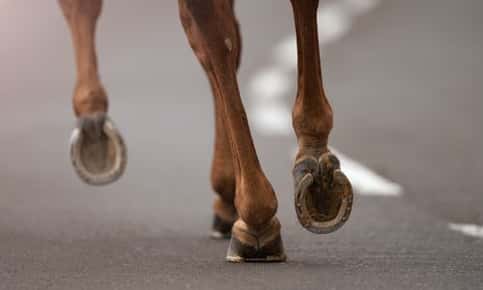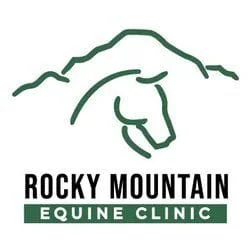
Why Your Horse Shouldn't Go Barefoot
Proper hoof care is essential to your horse's comfort and good health. Shoes offer a simple way to protect the hooves no matter what the weather.
7 Ways Horseshoes Help Your Horse
Horseshoes aren't a recent invention. In fact, the use of horseshoes became widespread about 1000 AD in Europe, according to Dressage Today. The shoes were made of bronze and replaced earlier versions made of leather.
Although horseshoes are more lightweight and sleek today, they still offer many important benefits for horses, including:
- Protection from Rough Terrain. Horseshoes prevent injuries to the hooves caused by walking on rocky ground or other rough types of terrain. They also reduce the risk of puncture wounds due to stepping on wires, needles, construction nails, glass, or metal. Wounds can cause lameness and can be life-threatening if infections occur.
- Better Balance. Shoes improve your horse's balance and may help prevent gait irregularities. In fact, corrective shoes can compensate for muscle, bone, or hoof issues.
- Less Stress. Running puts considerable pressure on an equine's hooves. If your horse participates in races, rodeos, or other events, horseshoes are a must. The shoes reduce the stress that can strain the hooves, joints, and legs.
- Reduced Wear and Tear. Wear and tear on hooves can lead to cracks and chips. Horses that have naturally soft or brittle hooves may experience increased wear and tear without shoes. Shoes can also prevent damage that can occur due to moist conditions.
- Improved Traction. Horses can more easily navigate uneven, icy or snowy surfaces when they're wearing shoes.
- Treatment of Chronic Conditions. Shoes may be part of your horse's treatment plan for ligament injuries, sole bruises, laminitis, contracted heels, flat feet, corns, tendonitis, and other conditions.
- Ideal Protection for Working Horses. Working horses are subjected to increased wear and tear and must often walk on varying terrains during the course of the day. Horseshoes not only reduce injuries but also absorb shock and help support your horse's weight.
Can Horses Ever Go Without Horseshoes?
Barefooting is experiencing a resurgence today. Some horse owners argue that regular hoof trimming is all that's needed to protect horses, while others believe that shoes are a better idea. Although it's true that horses in the wild don't wear shoes, their hooves become harder and more evenly worn because they travel through miles of natural terrain when they search for food. That's not the case for most domesticated horses.
If you've been thinking of removing your horse's shoes for all or part of the year, talk to your equine veterinarian and a farrier. These professionals can advise if going shoeless is a good idea for your horse.
Every horse, whether shoed or shoeless, needs regular visits from a farrier. Trimming hooves every four to eight weeks reduces overgrowth and keeps the hooves properly balanced. The perfect interval for trimming depends on many factors, including your horse's breed, activity level, and conformation.
Continue to care for your horse's hooves and ensure optimal health.
Sources:
Dressage Today: The History of Horseshoes, 4/4/2
EquiMed: Pros and Cons: Are Horse Shoes Necessary for Hoof Health?, 5/1/17
The Horse: Trail Horse Hoof Care, 10/23/16
University of Minnesota Extension: Caring for Your Horse's Hooves
